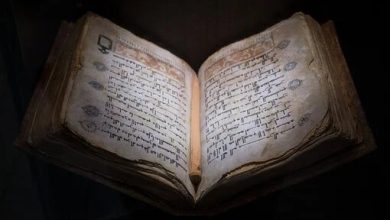Chris Wallace Crabbe is an Australian poet whose famous city poem “Melbourne” is a part of his collection Selected Poems: 1956-1994. The dichotomy between past and present intermingles with the city and its people as a product of their actions. People make cities and city shapes people. Thus, the interdependent relationship they share becomes a focal point for Crabbe in the poem to ponder over. A city is an entity that lives and witnesses multiple lives every day. It has its own trajectory with ups and downs and so the poet longs for the past to criticise the present like Samuel Johnson’s “London” which exhibits the magnificent city as a turning heap of industrial waste.
Melbourne | Summary and Analysis
The poem is composed in a first-person plural format to enable the speaker (assumed to be the poet himself) to express his oneness with his people and the city of Melbourne. Divided into five stanzas with six lines each, the poem does not follow any fixed rhyme scheme.
Melbourne | Analysis, Lines 1-6
Not on the ocean, on a muted bay
Where the broad rays drift slowly over mud
And flathead loll on sand, a city bloats
Between the plains of water and of loam.
If surf beats, it is faint and far away;
If slogans blow around, we stay at home.
The poem begins with a clear disclaimer about the geographical location of Melbourne which is in a state of in-betweenness. It is built on a quiet bay where the sun rays engage in a two-and-fro on the muddy shore in a slow rhythm (imagery). The flathead, which is a fish, is lying on the sand, presumably lifeless. Melbourne is situated between water and land soil. The alliteration “faint and far” for the ocean waves depicts the distance the city shares with water and is thus undisturbed by it. As the city maintains its safe distance from any troubles by the water, people to secure themselves from political turmoil by staying indoors and refusing any participation. This indifference on the part of the city’s population, however, might attract a vague response from the readers who can be confused about the speaker’s position and take on such ignorance. Does he support it or condemn it?
Melbourne | Analysis, Lines 7-12
And, like the bay, our blood flows easily.
Not warm, not cold (in all things moderate),
Following our familiar tides. Elsewhere
Victims are bleeding, sun is beating down
On patriot, guerrilla, refugee.
We see the newsreels when we dine in town.
The speaker draws a simile to compare the bay and the people in their temperaments. The weather in the city is moderate and is away from any extremity and similarly, the people are both compassionate and distant. Melbourne doesn’t witness variety per se as it follows “familiar tides.” Away from the city, somewhere else, violence is dominating lives and high weather temperature is torturing everybody whether a nation lover, a militant or a victim. The people learn about such atrocities while having their dinners comfortably and watching it on screen. Hence, there exists a section that is unharmed and continues to live life in peace contrary to their counterparts who struggle for their lives.
Melbourne | Analysis, Lines 13-18
Ideas are grown in other gardens while
This chocolate soil throws up its harvest of
Imported and deciduous platitudes.
None of them flowering boldly or for long:
And we, the gardeners, securely smile
Humming a bar or two of rusty song.
Melbourne the city and Australia as the nation relies on imports to sustain livelihood. They borrow not only material properties but intellectual property as well as referred to in the personification “Ideas are grown in other gardens.” A mocking tone is observed where the speaker laments the dependency on his city. He believes the Australians to have been losing their trust and confidence in themselves. The metaphor “gardeners” for the people suggests the rural mindset they dwell on and the alliteration “securely smile” confirms their affirmation of old ideologies.
Melbourne | Analysis, Lines 19-24
Old tunes are good enough if sing we must;
Old images, re-vamped ad nauseam.
Will sate the burgher’s eye and keep him quiet
As the great wheels run on. And should he seek
Variety, there’s wind, there’s heat, there’s frost
To feed his conversation all the week.
Time is never constant and so changes are inevitable as time moves ahead. The speaker claims that old songs and images can only ignite interest if they are reworked. Melbourne is lacking freshness and newness. It is only operating on what it has rather than putting a thrust on what it can have. A burgher can satisfy his monotonous life in the variety the city offers through different weather conditions rather than anything more substantial. The anaphora “Old tunes…Old images…” and “there’s wind, there’s heat, there’s frost” attempts to emphasize the presence of things whose significance is debatable.
Melbourne | Analysis, Lines 25-30
Highway be highway, the remorseless cars
Strangle the city, put it out of pain,
Its limbs still kicking feebly on the hills.
Nobody cares. The artists sail at dawn
For brisker ports, or rot in public bars.
Though much has died here, nothing has been born.
Modernisation builds its way to the city leading to the construction of highways one after the other, killing the natural beauty. The “remorseless cars” (personification) contribute to pollution and road accidents causing loss of life. The speaker laments the lack of attention civilisation pays to the adversity they are welcoming. The artists, who have the power to ruminate over the subject and pass their wisdom to the world ironically, pass their time in vain. Death ensures a new birth but the city, despite losing so much, witnesses no new growth and has come to a standstill. Hence, through this poem, the poet wishes to reignite the spark in his fellow Australians to grow and prosper.

